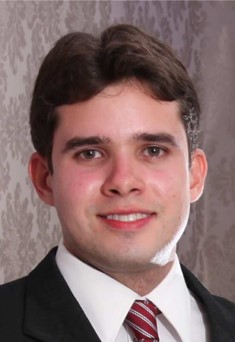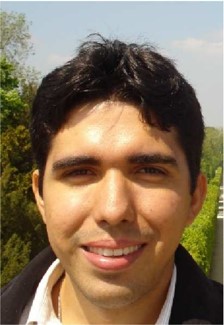Paving the Way Towards Mobile IAB: Problems, Solutions and Challenges
5G networks are being designed and deployed considering a dense deployment of small cells in order to simultaneously serve more users with higher throughput and lower delay. However, building from scratch a completely new infrastructure is costly and takes time. Deploying access and backhaul as wireless links, a.k.a. integrated access and backhaul (IAB), is envisioned as a viable approach to enable flexible and dense networks. Even further, mobile IAB (mIAB) is a candidate solution to enhance the connectivity of users moving together. Motivated by this, in this talk, we firstly present the basic architecture of IAB. Then, we provide the main use cases of mIAB. After that, an extensive performance analysis is presented. Passengers and pedestrians quality of service is evaluated. Moreover, results related to the wireless backhaul are also presented. The mIAB scenario is compared to two benchmark solutions, i.e., a scenario with only macro gNBs and a scenario with macro and pico gNBs fiber-connected to the core network. Finally, we summarize the lessons learned and list some open issues and future directions.
Date and Time
Location
Hosts
Registration
-
 Add Event to Calendar
Add Event to Calendar
Loading virtual attendance info...
Speakers
 Victor Monteiro
Victor Monteiro
Biography:
Victor F. Monteiro received the double B.Sc. degree in General Engineering, from the École Centrale Lyon, France and in Telecommunications Engineering (magna cum laude), from the Federal University of Ceará (UFC), Fortaleza, Brazil, in 2013. In 2015 and 2019, he received the M.Sc. and PhD degrees in Telecommunications Engineering from UFC, respectively. He is currently a visiting Professor at UFC and researcher at the Wireless Telecommunications Research Group (GTEL), UFC, where he works in projects in cooperation with Ericsson Research. In 2016, he was an invited researcher at Ericsson Research in Lulea, Sweden, where he worked for 6 months on the topic of LTE-NR Dual Connectivity. Besides, in 2017/2018, he spent one year at Ericsson Research in Stockholm, Sweden, where he worked on the topics of mobility management and channel hardening. From 2010 to 2012, he took part, in France, of the Eiffel Excellence Scholarship Program, established by the French Ministry of Foreign Affairs. His research interests include 5G architecture and protocols, 5G measurement and reporting procedures, mobility management and radio resource allocation.
 Francisco Rafael Lima
Francisco Rafael Lima
Biography:
Fco. Rafael M. Lima received the B.Sc. degree with honors in Electrical Engineering in 2005, and M.Sc. and D.Sc. degrees in Telecommunications Engineering from the Federal University of Ceará, Fortaleza, Brazil, in 2008 and 2012, respectively. In 2008, he has been in an internship at Ericsson Research in Lulea, Sweden, where he studied scheduling algorithms for LTE system. Since 2010, he has been a Professor of Computer Engineering Department of Federal University of Ceará, Sobral, Brazil. Prof. Lima is also a senior member of IEEE and senior researcher at the Wireless Telecom Research Group (GTEL), Fortaleza, Brazil, where he works in projects in cooperation with Ericsson Research. He has published several conference and journal articles as well as patents in the wireless telecommunications field. His research interests include radio resource allocation algorithms for QoS guarantees for 5G and beyond 5G networks in scenarios with multiple services, resources, antennas and users.

